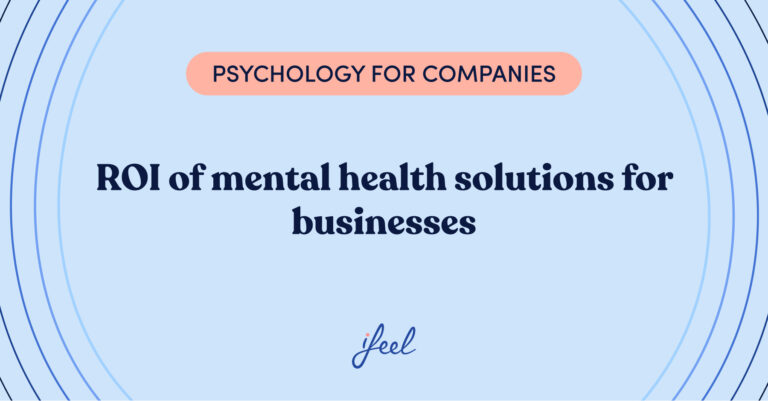In an increasingly competitive and demanding world of work, where personal life is often sacrificed to excel in the business world, the concept of ‘quiet ambition’ is gaining ground.
This new approach redefines the concept of success, in which a healthy balance between professional and personal life is more valued than moving up the career ladder. The term quiet ambition has become especially popular among the younger generation, who prioritise their general well-being over long working hours.

What is quiet ambition?
Quiet ambition refers to the aspiration to advance one’s career in a balanced way without sacrificing personal quality of life. This concept challenges the traditional notion that in order to move up the career ladder, one must work endless hours and be constantly available. Instead, it promotes a more sustainable and healthy approach to career success.
Quiet ambition, a term first used in a 2023 Fortune article, describes this new way of thinking about work preferences that is now prevalent among young people. Beyond the desire to advance in the workplace, they prefer a quiet and meaningful life in which the balance between the personal and work spheres is paramount.
Therefore, the main characteristics of quiet ambition are:
- Seeking work-life balance: Individuals with quiet ambition seek a balance between their work responsibilities and their personal lives.
- Efficiency over hours: They prefer to work more efficiently for reasonable hours rather than extend their working day.
- Focus on well-being: They prioritise their mental and physical health, understanding that well-being is critical to sustained and successful performance.
- Positive work environment: They prefer more collaborative and horizontal work environments, with inclusive decision-making, rather than hierarchical and authoritarian structures.
Implications of quiet ambition for business
The trend of quiet ambition represents a significant challenge for companies seeking to maintain a motivated and engaged workforce.
Studies have found that 39% of UK employees prioritise their well-being over higher pay or career progression, reflecting a growing interest in maintaining a healthy work-life balance. This shift underlines the importance of companies adapting their policies to attract and retain the best talent.
Otherwise, quiet ambition can threaten corporate stability, as if conditions do not improve, workers may avoid taking on managerial responsibilities. In fact, according to statistics, only 38% of employees are currently interested in becoming people managers in their current organisation. In comparison, 62% prefer to remain in working conditions that guarantee them a better work-life balance.
This lack of interest in leadership roles, exacerbated by increased stress and pressure expectations, could create a succession gap in companies if no action is taken.
To address these challenges, companies must foster an environment of psychological safety that allows employees to express their feelings and needs without fear of repercussions, adapting workplaces to these new definitions of ambition, focusing on purpose and work’s personal and community impact.
The importance of supporting employees’ professional development
Ultimately, the best way for companies to cope with this paradigm shift in the new generations is to adapt and redefine work environments. For HR managers and executives, understanding and supporting quiet ambition is crucial. This not only improves employee satisfaction and retention, but can also drive productivity and innovation in the company.
Virginia Grenón Lobato, Global Head of HR Operations at ifeel partner Cabify, emphasises the need for flexibility and autonomy in career development:
“Flexibility and autonomy. Having the opportunity to create, reinvent, reflect, raise counterpoints, innovate, and experiment without fear of failure”.
In this sense, companies should promote an environment where employees feel empowered to innovate and grow without fear of failure, i.e., support employees’ professional development. Of course, in the process of redefinition, leaders must also rethink their approach and the type of management they wish to apply.
Carlos Romero-Camacho Silos, Chief People & Corporate Affairs Officer at Insud Pharma, an ifeel partner company, points out:
“Leadership is based on attracting and retaining the best professionals by providing professional and personal development opportunities. Setting an example in how you act, leading in an open and honest way the abilities of your teams in growth projects”.
And we at ifeel agree: leaders must act as role models, promoting a positive and supportive work environment, providing options for employees to feel motivated, and therefore see business growth opportunities as positive, without sacrificing their personal lives in the process.
Strategies to foster professional development
- Mentoring programmes: Implement mentoring programmes that help employees develop their skills and move up the job ladder in a balanced way.
- Ongoing training: Provide training and development opportunities that allow employees to acquire new skills without the pressure of extensive additional hours.
- Regular appraisals: Conduct regular performance appraisals that consider not only professional achievements, but also employees’ mental well-being.

Quiet ambition vs. toxic work environment
One of the biggest challenges in implementing strategies that align with quiet ambition is the existence of a potentially toxic work environment. Such an environment can undermine employees’ efforts to maintain a healthy balance and lead to increased work stress and burnout.
A toxic work environment can be identified through several indicators. One of the main signs is an overly competitive environment, where employees feel constantly in competition with each other. On the other hand, a lack of recognition and reward for good performance can demotivate employees, negatively affecting their morale and productivity. And, of course, poor communication, characterised by a lack of clarity and openness, can lead to misunderstandings and conflicts, further deteriorating the working environment.
In this sense, the first step in adapting work environments to new trends in thinking related to quiet ambition is to develop strategies to improve the work environment. Among them, we can mention:
- Encourage collaboration: Create a culture of collaboration rather than competition.
- Regular recognition: Establish recognition and reward systems that value both individual and team achievements.
- Improve communication: Implement effective communication channels and foster a culture of constant and constructive feedback.
- Create an environment of psychological safety: Allow employees to express their feelings and needs without fear of repercussions, which can improve transparency and organisational culture. This accommodation is essential for employees to feel valued and understood, which is a key component of quiet ambition.
- Provide mental well-being solutions: Stress and constant pressure are realities for many employees and are especially prevalent in toxic work environments. Companies should adopt measures that enable employees to cope with work-related stress, such as implementing mental well-being solutions.

Unlocking teams’ potential in large organisation
At ifeel, we know that quiet ambition represents a necessary evolution in the way we understand professional success. For executives and HR managers, supporting this approach not only improves employee well-being, but can also lead to greater productivity and a healthier corporate culture…
To assist in this process, our team of expert workplace well-being psychologists has developed a mental well-being solution to help companies boost employee engagement and productivity.
Thanks to this collaboration, HR managers can receive personalised, data-driven advice on the most effective measures to detect mental health problems in employees and measure the work environment of their teams. This is the best way to understand their needs.
On the other hand, ifeel’s mental well-being solution for large organisations offers employees a mental health care service structured at different levels depending on what they need at any given time.
We hope you found this article on quiet ambition interesting. We encourage you to look at our new mental health section for insurers. If you would like more information about our mental well-being solution for companies, simply request it, and we will contact your team as soon as possible.










